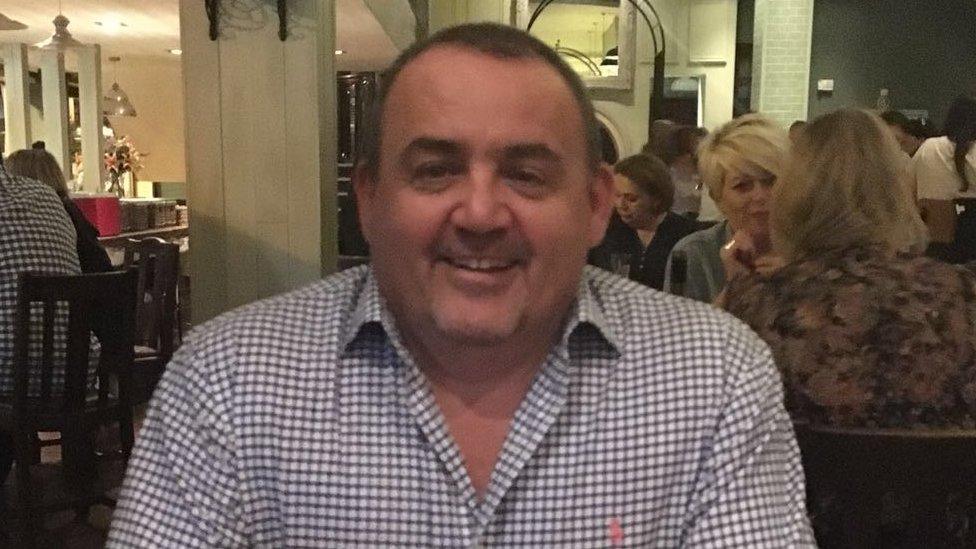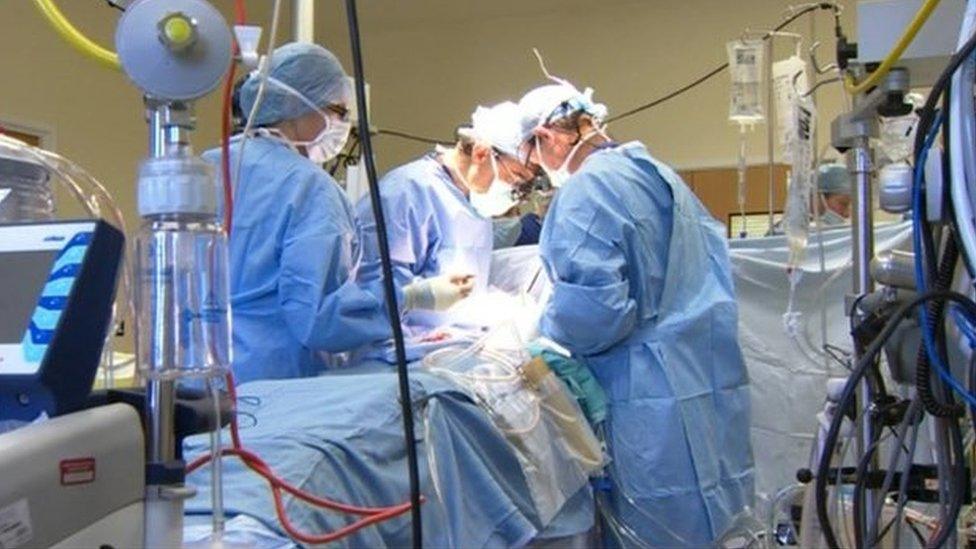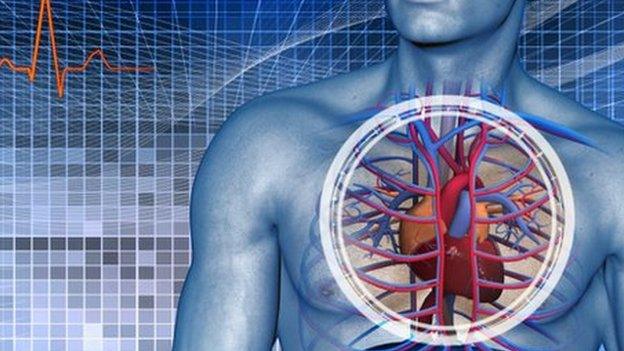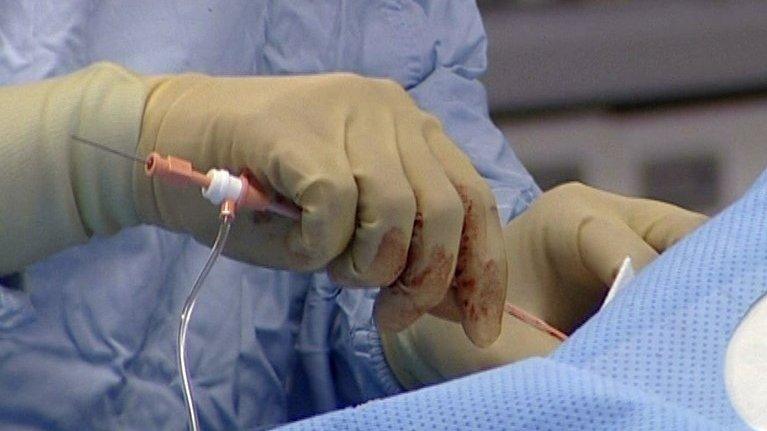Cardiac rehabilitation uptake on the rise in Wales
- Published
Ruth Coombs, head of BHF Cymru, said there were still inconsistencies in services depending on where people live
More patients are taking up cardiac rehabilitation after a heart attack, making Wales a "world leader" in the service, a charity has said.
British Heart Foundation, external (BHF) said 59% of patients sought support following a procedure - up 17% on the year before.
It comes two years after the uptake in Wales was criticised for falling behind care in England.
BHF welcomed the rise but said 2,000 patients were still missing out putting them at risk of another heart attack.
Cardiac rehabilitation offers lifestyle advice and support, including guidance on diet and exercise.
It helps people with heart disease to manage their condition and reduce the risk of repeat attacks, and BHF said evidence showed it cuts deaths and hospital readmissions.
Two years ago, just 38% of the patients eligible in Wales took part.
But figures published in the National Audit of Cardiac Rehabilitation, external (NACR) show during 2015-16 Wales overtook England's rate of 49% for the first time.

Case study

Len Drane, from Treharris, near Merthyr Tydfil, thought he was a fit and healthy, rugby-playing 42-year-old when he had a heart attack while playing golf in 2004.
He was rushed to Caerphilly Miners' hospital, where he spent five days before being transferred to Cardiff's University Hospital of Wales to be fitted with a stent to help improve blood supply to his heart.
The father-of-three then began rehabilitation which involved exercises to strengthen his heart.
"It was like light circuit training on a machine, light cardiovascular exercises that got your heart pumping and they built up every time," said Mr Drane, now 54.
"While I was discharged after about 16 months, it also helped make me more confident, like a self-help group, meeting other people in the same position."


Cardiac rehabilitation is offered after surgery or other heart procedures
This year's audit said the most common reason for people not taking part was a lack of interest.
But it said the number of patients with depression reduced after taking part, while the number of people meeting national exercise guidelines increased.
Although the report found more people were taking part, only half started their programmes within the recommended 33 days.
Ruth Coombs, head of BHF Cymru, said the figures were "hugely encouraging" but more work was needed to address delays in uptake and variations between services.
Prof Patrick Doherty, report author and director of the NACR, at University of York, said: "The good news is that Wales now leads the world in uptake to cardiac rehabilitation and prevention for patients following a cardiac event or procedure, with around 60% of patients accessing services.
"The bad news is that unfortunately four in 10 patients are still not accessing these services and those that do attend may receive inadequate care with nearly half of programmes failing to meet the minimum standards."
A Welsh Government spokeswoman said ensuring people got the right cardiac rehabilitation was saving lives and it had worked with the NHS to improve access to programmes in recent years.
- Published22 December 2014

- Published7 October 2016

- Published16 November 2015
